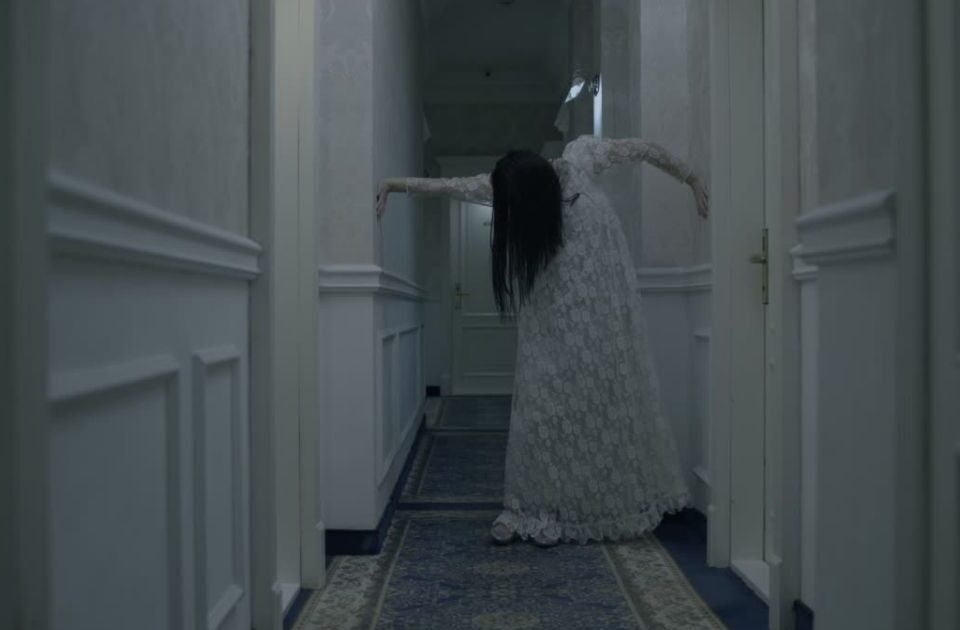
Everything You Should Know About Tauheed: Allah’s Oneness in Islam.
2024-05-13
Top 5 Marriage Issues and How to Resolve Them?
2024-05-21You might have seen people who experience involuntary twitching, blinking or sounds, etc. These symptoms are most common in patients suffering from Tourette Syndrome. It is a mental disorder that affects movement and control of your body. As a result, your body performs involuntary actions that are not possible for you to control. On the other hand, these symptoms might also be a cause of black magic or evil eyes. This affects the performance, quality, and health of your child. So getting help from professional Ruqyah services is necessary to end the influence of evil spirits and improve the quality of your child’s life.
What is Tourette syndrome?
Tourette Syndrome is a complication of the nervous system that leads to tics in people. Tics are sudden movements, twitches, or sounds that occur repeatedly in an individual due to a poor-functioning nervous system. These are involuntary and the person is unable to control them. Let’s say, Tourette Syndrome causes sudden blinking in an individual and the person cannot control the opening and closing of his eyes. Tics work just as hiccups which are involuntary and you cannot control when to stop them.
Types of Tics
Tics are characterized into two main types including the vocal and the motor tics. Vocal tics are related to sounds made by an individual involuntarily. These include problems like clearing the throat, humming, or yelling a phrase. On the other hand, motor tics are related to the body’s movement. These include shrugging the shoulders, blinking eyes, or twitching your arm. Sometimes these symptoms are a cause of influence related to evil spirits or black magic. Ruqyah services are very helpful to get the best treatment in this regard.
Nature of Tics
Tics also vary depending on their nature some can be simple and others can be complex. In the simple tics, only a few parts of your body are involved. For example, sniffing or squinting the eye are included in simple tics. On the other hand complex tics involve multiple parts of your body and usually follow a pattern. Twitching an arm along with bobbing the head and then jumping is an example of a complex tic.
Symptoms of Tourette Syndrome
One of the most common symptoms of Tourette Syndrome is the tics. These can be temporary and simple or long-lasting and complex. The symptoms of the syndrome usually start appearing when a child reaches 5 to 10 years of age. Tics occurring in the early stage are related to the neck and head area. With time there are a lot of changes that take place in the nature, severity, and type of tics taking place in an individual. The symptoms might disappear after some time and then reappear again in case of chronic conditions. In early adulthood or adolescence the symptoms of tics usually reduce or sometimes may also disappear completely. But in severe cases, these symptoms may worsen at this age.
On the other hand, the rare symptoms of Tourette Syndrome are coprolalia and echolalia. Coprolalia is a condition in which the individual will start shouting swear words involuntarily. Echolalia is a condition in which the person repeats the wording of the other person he is hearing. The symptoms might also occur due to black magic or even eyes. In this case, consulting the best Ruqyah services is important to improve the symptoms and health of your child.
Risk Factors of Tourette Syndrome
When talking about the risk factors that may lead to the occurrence of Tourette Syndrome it is important to know that doctors are unable to find the exact cause of this condition yet. According to expert researchers, it is suggested that this syndrome is an inherited disorder and occurs due to genetic abnormalities. So the only known mechanism behind Tourette Syndrome is the passing of genes from the parents to the offspring.
Diagnosis
Now the question that arises here is how can you diagnose Tourette Syndrome? Well, there is no specific test that is used for diagnosing this syndrome. So taking a blood test would not help in the diagnosis. In clinical practice, healthcare experts examine the condition of the patient visually and physically. They look for the appearance of tics or other symptoms related to the Tourette Syndrome. The type of tic disorder can vary from person to person depending on whether it is vocal or motor or in combination. Moreover, the doctor will enquire about the period of occurrence of these symptoms and the basic history of the patient.
The most common problem here is that Tourette Syndrome is possible to be diagnosed if the patient is experiencing the symptoms for at least 12 months. Even then if the doctor is unable to diagnose your child’s condition it is highly suggested to take him to a professional Ruqyah service provider. These experts have experience in figuring out if your child is under the influence of black magic or evil eyes. These service providers will end this influence to improve the overall quality of your child’s life.
Other Risks
People suffering from Tourette Syndrome are also likely to get other severe complications related to the behavioral, mental, or developmental aspects. One of the most common disorders seen in people with Tourette Syndrome is ADHD which is attention deficit hyperactivity disorder. Also, OCD is another common condition that is seen in people with Tourette Syndrome. The proper diagnosis of Tourette Syndrome and other related conditions is important to treat the patient properly and on time.
Treatment
Until now there has been no cure for Tourette Syndrome which makes its treatment even more difficult. However, doctors focus on improving the symptoms and managing tics in people with the syndrome. Sometimes tics are not a hindrance in the life of the patient and he can do his routine tasks easily. On the other hand, tics can become a major problem in doing regular day activities in some patients. However behavioral treatments and medications are always available to treat these symptoms and improve the quality of a patient’s life. These treatment options are specially considered if tics interfere with the school performance, social life, physical health, work, or mental health of the patient. Taking your child to a Ruqyah service professional would also be a great option. They will see if your child is surrounded by the influence of evil spirits and will terminate the influence improving your child’s health.
Conclusion
It is important to consider that a proper and timely diagnosis of Tourette Syndrome is necessary to manage its symptoms and improve the quality of life of the individual. A bitter reality is that sometimes your child might be experiencing such symptoms due to the influence of black magic or evil eyes. In that case, behavioral therapy or medications are not helpful. So it is best to consult professional Ruqyah services to get help in this case.




